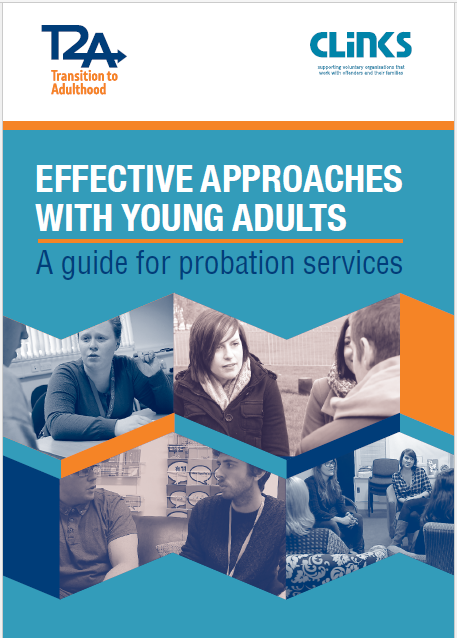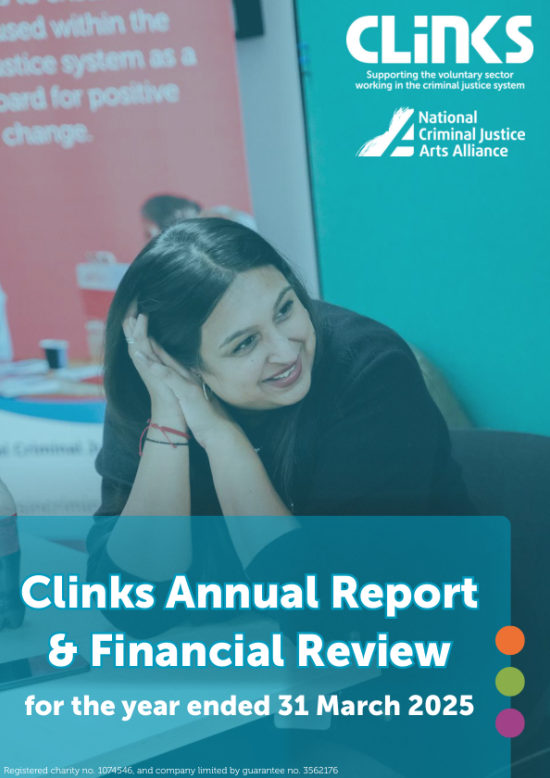It is increasingly recognised that young people do not reach ‘maturity’ at age 18 but in fact well into their mid-twenties. There have been huge developments in our understanding of brain development over the last few decades – in fact 90% of what we know about brain development was discovered in the last twenty years.
 However, the UK Criminal Justice System and other public services still largely use age 18 as a precise cut off point when children’s/youth services end and adult services begin. For young adults this means they are expected to understand and adapt to a whole different way of relating to services overnight. We know that it’s not very effective because young adults in the Criminal Justice System have higher rates of reoffending and recall to prison than older adults. However, young adulthood is also a time when people are very likely to move away from crime if the right support is provided, so it makes sense to focus on this group.
However, the UK Criminal Justice System and other public services still largely use age 18 as a precise cut off point when children’s/youth services end and adult services begin. For young adults this means they are expected to understand and adapt to a whole different way of relating to services overnight. We know that it’s not very effective because young adults in the Criminal Justice System have higher rates of reoffending and recall to prison than older adults. However, young adulthood is also a time when people are very likely to move away from crime if the right support is provided, so it makes sense to focus on this group.
Over the past few years, thanks in part to the evidence gathering and lobbying of the Transition to Adulthood Alliance, there is now greater understanding that things need to be done differently. This is clearly demonstrated in the launch of the Justice Select Committee's inquiry into young adults, which shows growing political interest in the face of mounting evidence around the need for a unique approach to young adults.
There is good practice that already exists at a local level, and Clinks wanted to ensure that this learning is put into practice by pracittioners both within probation services and those working alongside them. We are hopeful that this will support practitioners working with young adults on probation to use the most effective approaches, and thereby improve desistance from crime. So we visited several services that are pioneering great work with young adults and asked them what practitioners can do to engage well with this age group. Their experience has been developed into this guide for probation services on working with young adults.
Writing this guide has been eye opening for me. It has made me reflect on my own young adulthood and just how much support I received as I gradually navigated a path to independence. It has also made me notice the things that young people I know need and rely on – someone they like and who likes them to go to if they have a problem, someone to advocate on their behalf if they are not getting what they need, someone to remind them to turn up at an appointment or pay a bill on time, someone to help them budget or learn how to cook.
Yet for young people in the Criminal Justice System, that network of support as they gradually transition to adulthood is very often not there. They often have little or no effective support from their families and inadequate support from elsewhere, and yet are expected to understand and comply with complex requirements set by the probation service and job centres, manage their accommodation and finances, all whilst trying to forge an identity and develop a life away from crime.
The value of consistent, holistic and practical support such as mentoring for these young adults has been demonstrated time and time again, not least by the T2A pilots. However, mentoring services are not available everywhere, so we wanted to explore what practitioners can do within the constraints of offender managament, and delivering orders of the court, to ensure they engage effectively with young adults.
We found that there are lots of small things practitioners can do that really make a difference in outcomes for young adults. Probably the most important of these hinge on developing a good relationship with that young adult. Many young people in the Criminal Justice System have experienced abuse or neglect and/or been in care, and this experience affects their ability to form relationships with professionals. On top of this, because of their level of maturity they may not focus on long term consequences – they are less likely to engage with probation or other services because it’s good for them in the long run, but will engage if they have a good relationship with their worker. So, while effective working relationships between clients and practitioners are important for all age groups, they are particularly crucial for young adults. Practitioners told us about the various things that help them to develop this relationship – always keeping promises they make to the young adult; meeting in an informal setting where possible (even if this just means going for a walk outside the office occasionally, or chatting whilst making a cup of tea); and setting boundaries and sticking to them.
The guide also includes information on the specific issues facing young adults and how they impact on their engagement with probation, including maturity, trauma, health needs and the development of life skills; as well as guidance on how to tailor services to specific groups of young adults with particular needs such as women, Black, Asian and minority ethnic young (BAME) people, those with disabilities, and care leavers. There is also a section for managers and commissioners on things they can do to enable effective engagement of young adults and adapt services where necessary.
Now that we have launched the guide we are planning a series of events to enable practitioners to share their experiences and learning, and also to find out what further support would be useful to them; the first event is in Leicester with more planned in Wales and London. If you would like further information please email nathan.dick@clinks.org.
What's new
Blogs
Anne Fox CEO of Clinks to stand down after a decade of service
Latest on X
The role is for a leader from an organisation focused on racially minoritised people, with expertise in service delivery, policy, advocacy, or related areas in criminal justice. Racial disparities are present at every CJS stage. This role ensures these voices are central in shaping policy to help address and eradicate them. Apply by Mon 18 Nov, 10am. More info: https://www.clinks.org/voluntary-community-sector/vacancies/15566 #CriminalJustice #RR3 #RacialEquity

